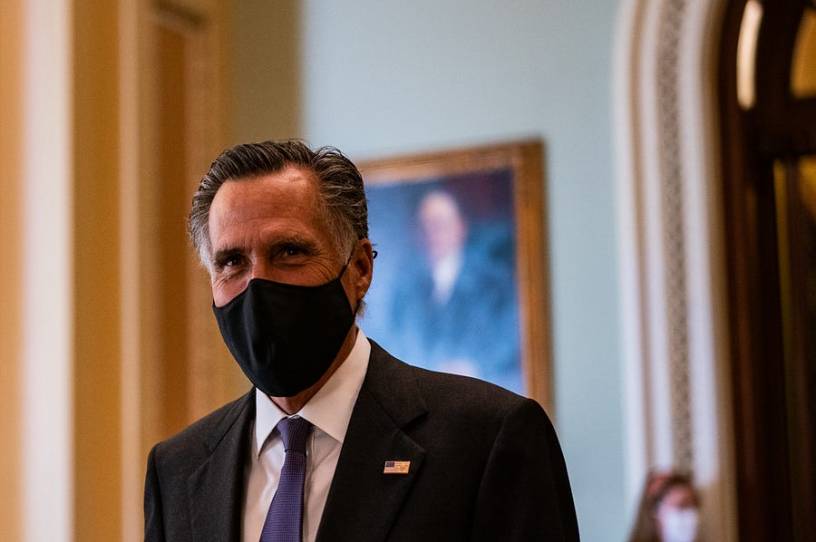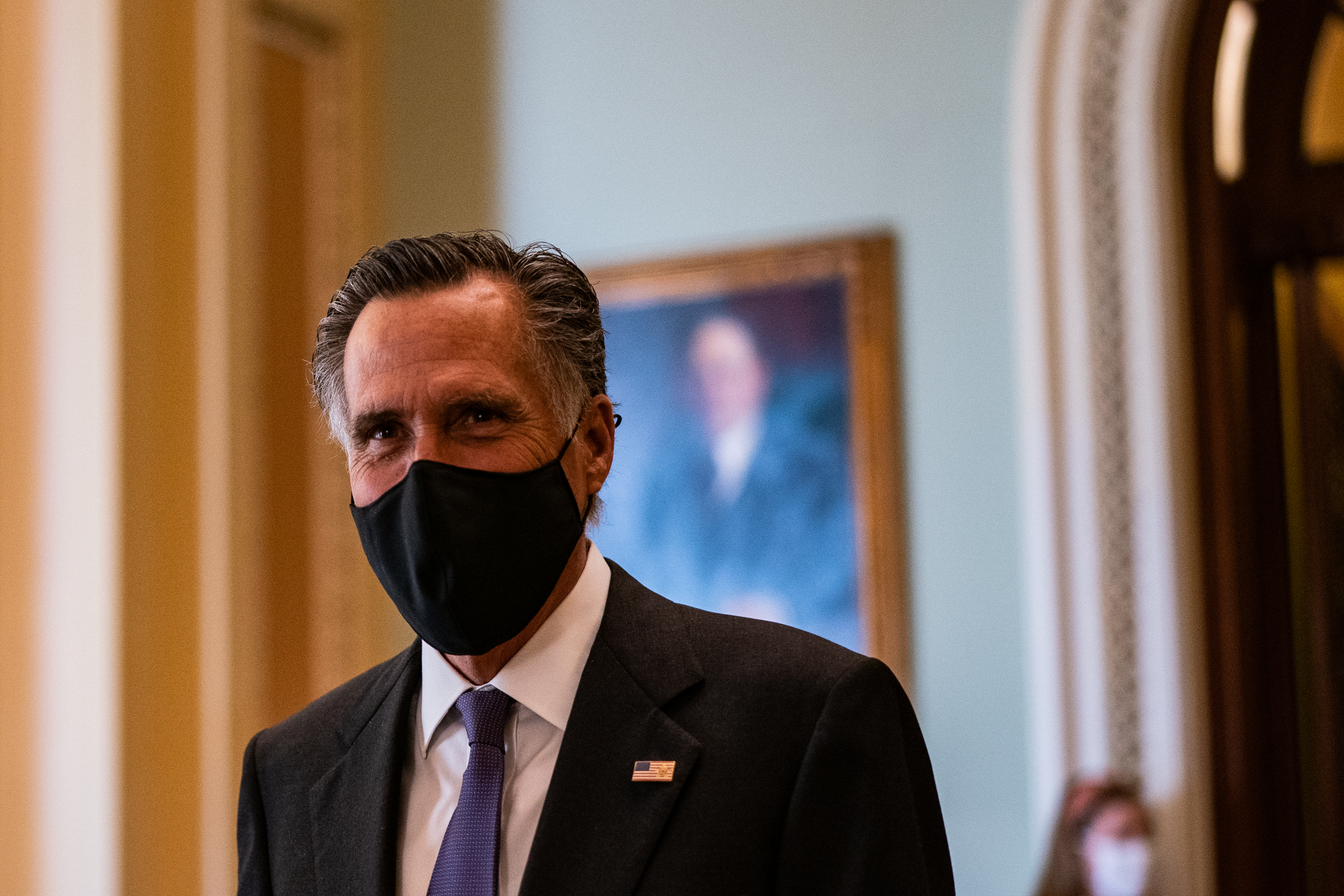Our Best Stuff From a Week We Didn’t Get Stuck in a Bill Murray Movie

Admit it: You woke up a little nervous on Wednesday, didn’t you? You were worried that your clock radio would be playing the same tune as Tuesday and the DJs would, with a little too much enthusiasm, announce that it was Groundhog Day, right?
Good news: We made it. Punxatawney Phil saw his shadow, but consigned us merely to six more weeks of winter. I think we can agree that there were far worse things he could have given us six more weeks of: Donald Trump’s Twitter account or Andrew Cuomo’s book tour, for example. (I would not have complained about six more episodes of Lupin, though.)
As far as the news cycle goes, we haven’t quite turned the corner on Donald Trump and his administration, but we’re approaching the intersection. His impeachment trial looms next week. Mike Lindell, the MyPillow guy, released a “documentary” called Absolute Proof that purports to lay out how Trump actually won the 2020 election. But it mostly made news for the disclaimer that OAN is running before airings in an attempt to avoid being sued by Dominion Voting Systems and Smartmatic, saying that Lindell purchased the airtime and that the film contains “opinions only.”
Meanwhile, the House GOP is moving on after some Trump-tangential infighting. Matt Gaetz and Jim Jordan led an effort to have Liz Cheney—who as conference chair is the House’s No. 3 Republican—removed from GOP leadership for her vote to impeach Trump. And Donald Trump made calls to House members, urging them to oust her. But as we reported in TheMorning Dispatch, Cheney offered a vociferous defense on her own behalf in a GOP Conference meeting that lasted four hours. Gaetz had said before the meeting that he was worried “the establishment is going to find a way to kick the question, avoid a vote.” In fact, Cheney called for the vote herself. And she won, 145-61.
“This is about the direction of our party, and whether or not we’re going to be a minority who’s dedicated to just one person, or we’re going to be a united Republican majority,” Rep. Jaime Herrera Beutler, a Cheney backer, told The Dispatch.

And Mitt Romney decided it was time to get the GOP in the legislation business again. He introduced the Family Security Act, which would give families allowances of $250 per child for kids ages 6 to 17 and $350 per child for those younger. Importantly, it’s deficit neutral, paying for itself by eliminating or paring back other deductions like the child tax credit and the earned income tax credit, and some analysts have said it could upend welfare as we know it. It will be interesting to see how the debate plays out. Lyman Stone of the American Enterprise Institute has a good Twitter thread about how, even as the checks will go to anyone, regardless of income level, it will have pro-marriage and pro-family benefits for those at the lower end of the income spectrum. (But that should merely supplement your reading, because The Morning Dispatch covered it too.)
As for The Dispatch, we decided to break a little news via podcast this week. I highly recommend you listen to all of Friday’s Dispatch Podcast, in which former Fox News political director Chris Stirewalt joined Steve, Sarah, and Jonah. But I can’t resist spoiling their big reveal (hey, it’s been out there for a whole day now): Stirewalt is joining The Dispatch as a contributing editor! Look for him to be featured on other podcasts, and we’re eager for him to have his first byline. If you missed his Los Angeles Times op-ed on calling Arizona for Joe Biden on election night, check it out. It sounds many of the same themes that we hit in our founding manifesto.
Now, here’s our best stuff from the week that was.
Do States Have Enough Federal Funding to Safely Reopen Public Schools?
It’s hard to argue with money being spent to help schools reopen, right? We want our kids—and their teachers—to be safe, and we want them to be able to learn in-person. But what if money isn’t the big problem? Joe Biden has proposed $130 billion for that purpose in his $1.9 trillion COVID spending package. Dan Lips, from the Foundation for Research on Equal Opportunity dug into data from the Department of Education and found that states have yet to touch between $53 and $63 billion of the federal funds already made available to them. “In December, the CDC estimated that implementing its recommended mitigation strategies in pre-K and K-12 schools would cost between $55 to $442 per child. With approximately 51 million K-12 public school students across the nation, ensuring these safety measures are taken at all schools should cost roughly $23 billion,” he writes.
Can We Have (Another) Conversation About Cancel Culture?
Cancel culture is real, and it’s a problem. People have lost jobs or faced public humiliation when potentially offensive tweets “resurface” or good-faith arguments on contentious issues are deemed unacceptable. But “cancel culture” is not what is going on with Marjorie Taylor Greene or Josh Hawley. The House—including 11 Republicans—voted to strip Greene of her committee assignments after GOP leadership declined to do so. Greene has promoted QAnon, said that school shootings were false flag operations, and called for the execution of Democratic politicians. She’s still a member of Congress. Hawley lost a book deal after leading the effort to reject some states’ electoral votes. He’s still a senator, and he has a new book deal. But real examples abound, and in French Press (🔐) David details them: Majdi Wadi lost the lease for his bakery after it was revealed his 24-year-old daughter had made racist and anti-semitic social media posts as a teenager, and progressive data analyst David Shor lost his job after tweeting a study that showed that non-violent protests help Democratic vote share but violent protests hurt it. “Decent people are losing jobs or suffering catastrophic reputational loss for engaging even in respectful dissent. At the same time, indecent people are using righteous anger at the plight of the decent as a shield for their own misconduct.”
A New Fairness Doctrine Is an Old, Bad Idea
It’s popular among some conservatives these days to push for more regulation of the internet. They believe that social media companies “censor” conservative viewpoints, and Amazon Web Services’ decision not to host Parler after the upstart company ran afoul of its contract has added to the calls. But we’ve been down this road, and it didn’t turn out so well. Paul Matzko offers up a history lesson on the Fairness Doctrine. From 1949 through 1987, the FCC cited a “scarcity rationale”—the government controlled the airwaves and there were only so many broadcast licenses to be had—to require broadcasters to accommodate the “expression of the contrasting views of all responsible elements in the community” on controversial issues. How did that work in practice? JFK used it to tamp down on critics from right-wing radio, and LBJ employed it to demand free airtime from radio hosts who criticized his escalation of the Vietnam War. Well, then.
AOC’s January 6 Account
Earlier this week, Democratic Rep. Alexandria Ocasio-Cortez took to her favorite platform, Instagram, to discuss her experience during the storming of the Capitol on January 6. What ensued offers up some lessons for the media, as Haley explains in Uphill. In her livestream, AOC detailed her fear as she heard pounding on her office door, saying she was worried it was a rioter. By the time she shared that he was actually a police officer, the damage had been done: Reporters live-tweeting her remarks had already sent out the message that it was a rioter. That proved hard to walk back; the misimpression made it as far as The Today Show. Further confusion resulted from the fact that AOC’s office is not in the Capitol building but in the nearby Cannon office building, which is connected to the Capitol via tunnels. AOC explained she was in Cannon, but people still claimed that she lied about being in the Capitol. Haley points out how the disinformation is unhelpful, to say the least: “Because of the widespread confusion about what she actually said, much of the right-wing pushback to her story in the days since has really been in response to bits and pieces of her account taken out of context,” she writes.
And here are a few other things you might have missed.
In a very entertaining G-File, Jonah offers what we wish would be the last words on MyPillow magnate Mike Lindell. The Gutenberg printing press, Doc Brown’s DeLorean, and the Avengers’ infinity stones all make an appearance.
Loyal readers of Vital Interests are probably aware that Tom Joscelyn is no fan of the Doha deal the Trump administration negotiated with the Taliban to withdraw our troops from Afghanistan. But he reminds us again, warning the Biden administration (🔐) that it will have a big decision to make in the coming weeks.
Sarah is here to remind us that campaign season never really ends. In The Sweep (🔐), she talks to Dan Sena, the executive director of the Democratic Congressional Campaign Committee for the 2018 cycle. They discuss how parties recruit candidates, how they choose which districts to contest, and more.
Joe Biden wants to put a $15 an hour minimum wage in his $1.9 trillion pandemic relief plan. In Capitolism (🔐), Scott Lincicome goes in-depth on the many downsides of a big minimum wage increase: It costs jobs, reduces fringe benefits and perks for people in low-wage occupations, and hits small businesses especially hard.
The pods! The pods! If the legal nerdery on Advisory Opinions isn’t always your thing, maybe the typographical nerdery will be. Don’t miss David and Sarah’s debate about fonts. Apropos of nothing (cough cough), Jonah welcomes Joseph Uscinski, a political scientist who specializes in conspiracy theories, to The Remnant. Last but not least, on the first Dispatch Podcast of the week, the gang discusses the willingness of Joe Biden and the Democrats to try to push through the $1.9 trillion COVID relief bill without GOP support.